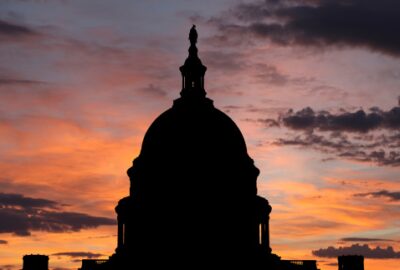Since President Donald Trump assumed office, groups of people concerned with the well-being of ordinary civil servants have been warning about major job cuts, general disruption and furloughs to come.
Rhetoric about draining the swamp (where you live and work) didn’t help. Most people on the job still remember the sequestration-triggered furloughs of 2013, when large numbers of workers took the equivalent of a 20-percent pay cut. Long enough to cause a run on the Federal Employee Education and Assistance fund. FEEA is a feds-helping-feds charity that also gets generous corporate donations from groups (like GEICO, Blue Cross-Blue Shield and GEBA) doing business with civil servants and retirees.
In 2013, a new legislative tool, sequestration, a creation of the Obama administration, kicked in for the first —and hopefully only — time. Thousands of government employees were furloughed for several weeks. FEEA, which at that time normally made about $50,000 per month in emergency loans, was swamped. Requests for loans to pay for mortgages, rent and food tripled. In August alone that year, it made $235,000 in loans and temporarily ran out of money. To refresh your memory of those unhappy times, click here.
At the time, hardly anyone understood the concept of sequestration, which resulted in the furloughs. Several months later, nearly half the government was shut down due to Congress’ failure to come up with agency budgets or appropriations. Ironically, after all the confusion, and in some cases, the heartache of the furloughs, employees who were locked out and not allowed to come to work were paid anyhow. Late, but at least they got paid. Furloughed workers were never reimbursed and some may still be catching up.
The good news is that last week, on Aug. 15, the Congressional Budget Office announced there will be no sequestration-triggered furloughs this year. That doesn’t rule out unrelated furloughs, but odds are there won’t be any. Federal News Radio reported that “agencies will not face cuts from sequestration in the final six weeks of the fiscal year. The CBO reiterated its earlier findings that the discretionary spending will not bust the budget caps” of the Budget Control Act. But it warned that there could be problems if Congress adds any new appropriations before Sept. 30.
Because Congress has so much work ahead of it, with so little time (roughly 44 working days left in September, October, November and December), anything could happen. There are other major issues — like health care, tax reform, raising the debt ceiling, etc. — that are far more important than proposals to whack the federal retirement program. Bottom line, while anything could happen between now and the last working day in December, one of those things is that nothing will happen.
For more news on the sequestration front, plus a look at the full CBO report, click here.
Nearly Useless Factoid
By Michael O’Connell
A peck of pickled peppers would fill up 2 gallons, 8 quarts or 0.25 bushel.
Source: Math Forum
Copyright
© 2024 Federal News Network. All rights reserved. This website is not intended for users located within the European Economic Area.
